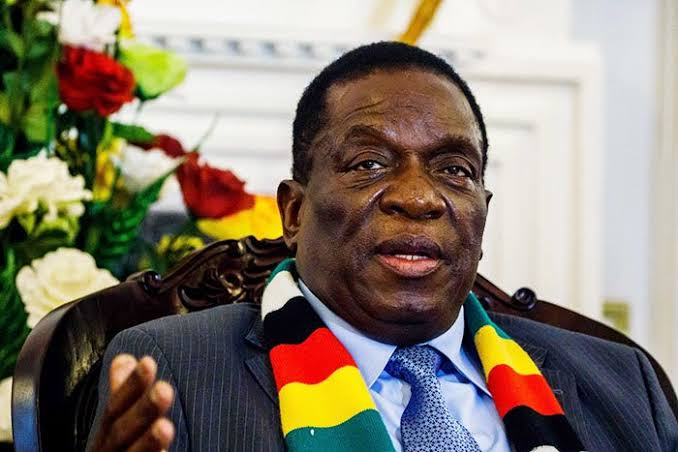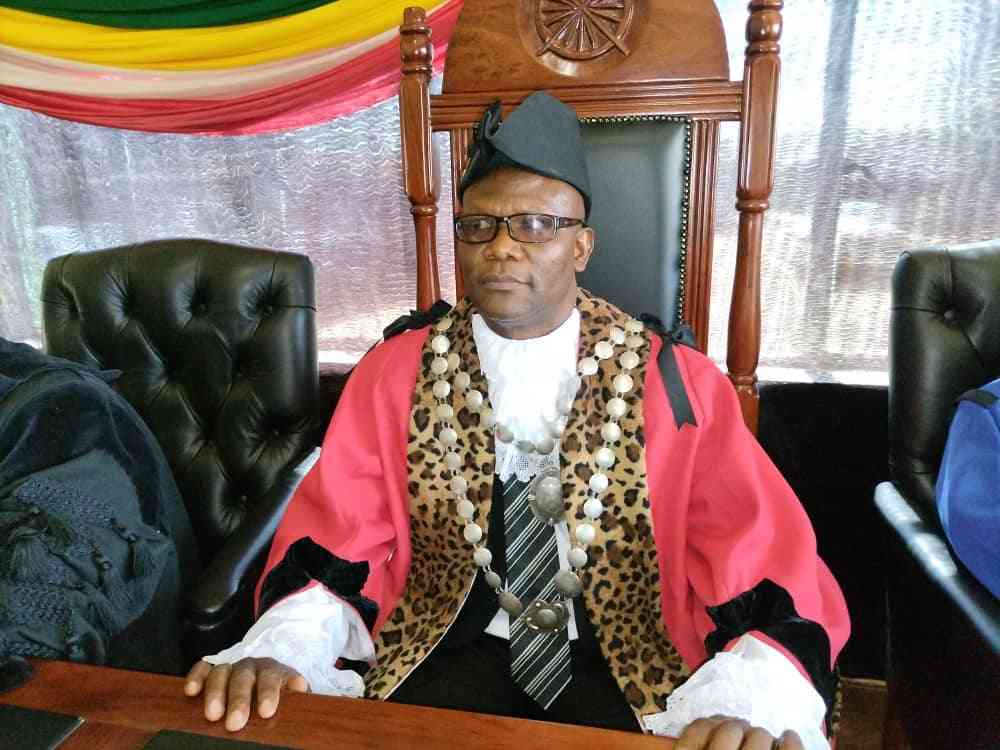
After rising to power on the back of promises to turn Zimbabwe into “a new democracy” following 37 years of iron-fisted rule by the late Robert Mugabe, President Emmerson Mnangagwa has come full circle by repeating the tragic errors of his predecessor’s reign.
In 2021, Mnangagwa gave a glimpse of what was to come when he signed the Constitutional Amendment Bill No 2 into law amid protests by critics that he was returning the country to an era of imperial presidency where powers were concentrated in Mugabe’s office.
The amendment eliminated the presidential running mate clause in the country’s supreme law and gave the president powers to appoint members of the judiciary.
Critics have said the constitutional changes eliminated mechanisms intended to hold the president to account for any wrongdoing and in some cases, illegal conduct.
Despite the constitutional amendments receiving widespread criticism as undemocratic and giving too much power to Mnangagwa, it sailed through comfortably in the Zanu PF-controlled National Assembly and Senate.
And just like in 2021, 2022 saw controversial Bills such as the Private Voluntary Amendment (PVO) Bill that seeks to entrench Mnangagwa’s rule take centre stage in Parliament.
Now in the twilight of his final year of the five-year term, Mnangagwa’s eye is undoubtedly on the 2023 election where he seeks another mandate.
Through a cocktail of tactics including closing down the democratic space, firing judges and arresting critics among others, re-election at all costs appears to be the ultimate goal for the 80-year-old ruler.
- Some Nkayi councillors illiterate: Ex-chairperson
- 2022: The year Mnangagwa entrenched his rule, closed democratic space
- Gwanda to build flats on sports ground
- ‘ED copying Smith’s colonial handbook’
Keep Reading
Mnangagwa has heavily invested in the legal side of things to safeguard his grip on power through wholesome changes in the judiciary, frequent use of statutory instruments (SI’s) and presidential powers.
Crisis Group’s senior consultant for southern Africa Piers Pigou said Mnangagwa was abusing SIs to override the legislature.
“SIs are meant to be the exception to the rule, but we have seen SIs being abused by both Mugabe and Mnangagwa as an executive tool that effectively bypasses the normal legislative process,” Pigou said.
“This is meant to be temporary and used on special occasions, but what we see is that it is increasingly becoming a part of the executive toolkit for overriding the legislature.”
The SIs and presidential decrees do not go through Parliament and are not tested for their constitutionality.
CCC spokesperson Fadzai Mahere said Mnangagwa had no respect for the rule of law.
“The excessive use of rule by SIs especially in areas where a statutory intervention by Parliament is more appropriate is further evidence of that failure by Mnangagwa to respect the rule of law,” Mahere said.
“This illegal conduct is part of a series of governance failures by Zanu PF, which can only be put to rest by voting decisively for change in 2023.”
Former Finance minister, Tendai Biti said the Presidential Powers (Temporary Measures) Act, which allow a president to bypass Parliament and make laws, was patently unconstitutional.
“Presidential decrees are an authoritarian and an abuse of citizens and Parliament,” Biti said.
The year 2022, also saw the executive tightening its grip on the judiciary.
In September this year, High Court judge Edith Mushore — who was part of the judges who, in May 2021 ruled that the extension of Chief Justice Luke Malaba’s term of office was illegal — was fired by Mnangagwa.
The judges ruled that Malaba had ceased to be chief justice upon reaching the age of mandatory retirement.
The judgement was viewed as a setback to Mnangagwa after he had changed the constitution through Constitutional Amendment Bill No 2 to allow him to appoint senior judges without going through a public vetting process.
Malaba later appealed the judgement and won the case.
Malaba led the Constitutional Court bench that declared Mnangagwa president following a disputed 2018 election where Citizens Coalition for Change (CCC) leader Nelson Chamisa challenged his narrow poll victory.
Chamisa has refused to recognise Mnangagwa’s legitimacy.
Last year, Mnangagwa sacked High Court judge Erica Ndewere for “gross incompetence.”
However, critics said this was a punishment for Ndewere after she granted bail to opposition CCC vice chairperson Job Sikhala (MP) in 2020.
Along the way, the democratic space closed down further in 2022 with Sikhala remaining behind bars following his arrest in June. He was arrested for allegedly inciting violence.
Sikhala was arrested alongside 15 other party members who included fellow legislator Godfrey Sithole.
The charges emanated from the violence that occurred at the funeral of slain CCC activist Moreblessing Ali in Nyatsime in May this year.
Sithole and the Nyatsime 15 were released last month, but Sikhala’s multiple bids for freedom have been dismissed.
Last week, a High Court judge indefinitely reserved judgement on the legislator’s appeal for bail.
Sikhala’s case has been flagged by the opposition and human rights activists as evidence that Mnangagwa has intensified efforts to close the democratic space and that he walks in Mugabe’s footsteps.
The opposition CCC has also been a target of the state since the party’s formation early this year. Critics say this harassment is a well calculated script to ensure the party fails to campaign ahead of the 2023 elections.
A number of CCC rallies have either been disrupted or banned by the police.
Police last weekend barred the CCC from holding end of year rallies in Harare and Chitungwiza.
Authorities have also not hesitated to invoke Section 33 of the Criminal Law (Codification and Reform) Act to prosecute critics on charges of insulting or undermining Mnangagwa’s authority.
Former National University of Science and Technology student Rujeko Mpambwa (24) faced charges of having insulted Mnangagwa in August 2020. His trial commenced in July 2022.
Mpambwa was eventually acquitted of the charges last month.
The Zimbabwe Lawyers for Human Rights (ZLHR) said in recent months it had recorded several cases of individuals that were arrested and prosecuted on allegations of insulting Mnangagwa.
“The crime of insulting the president has its roots in the country’s colonial past,” the ZLHR said.
“It is a re-enactment of section 16 of the Public Order and Security Act and the repressive colonial Law and Order (Maintenance) Act (LOMA) of 1960, which was used by the colonial regime to supress civil unrest as the liberation struggle intensified.
“Loma was especially used to restrict the right to freedom of expression and the right to protest against the colonial regime.
“When Zimbabwe attained its independence in 1980, the provision was retained and is now increasingly used against critics of the post-colonial government.”
Mnangagwa’s government continued to roll out proposed draconian laws such as the Private Voluntary Organisations (PVO) Act Amendment Bill and the Criminal Law (Codification and Reform) Amendment Bill 2022 that has clauses that seek to punish “unpatriotic” Zimbabweans.
The proposed law has come to be known as the Patriotic Bill.
PVO Bill
The PVO, which has been roundly condemned as infringing on constitutionally guaranteed civil and political rights recently sailed through Parliament and now awaits scrutiny by the Senate before it is taken up for presidential assent.
The Bill has been seen as stifling operations of non-governmental organisations (NGOs) by giving the state unfettered powers to snoop into their operations.
It places all civic society organisations (CSOs) registered under different laws under one law and the clauses indicate an attempt to control and shut down civil society perceived to be “anti-government.”
The Bill aims to limit CSOs ability to perform roles that might fundamentally affect the ability of ordinary Zimbabweans to fully participate in democratic processes, including the upcoming elections.
It contains vague provisions where supporting or opposing a political party or candidate is prohibited, but it is not clear what supporting or opposing a political party means.
‘Patriotic Bill’
In November, Cabinet approved the Criminal Law (Codification and Reform) Amendment Bill 2022 that imposes stiff penalties on Zimbabweans accused of campaigning or speaking ill of perceived national interests.
The Bill seeks to consolidate Zanu PF’s rule at the expense of human rights.
It has been described by human rights groups and opposition as a repressive piece of legislation and a threat to freedom of expression.
Health Services Amendment Bill
The Bill contains repressive clauses meant to stifle democracy and intimidate health professionals into silence by making it illegal to go on strike.
The proposed law, which seeks to align the Health Services Act to the constitution, criminalises strikes lasting longer than 72 hours.
It proposes prison sentences for those accused of plotting the demonstrations.
Despite spirited opposition, the Bill sailed through both houses and now awaits the president’s signature before it becomes law.
Media Practitioners Bill and Zimbabwe Media Commission (ZMC) Amendment Bill.
Media representative groups have accused government of having smuggled back contentious issues contained in the controversial Access to Information and Protection of Privacy Act (Aippa) which has since been repealed.
There are fears that the Bills, if they are approved, will hinder scribes from freely carrying out their duties.
Observers expect Mnangagwa to continue tightening the noose around his opponent’s necks as the country heads to the 2023 elections.










